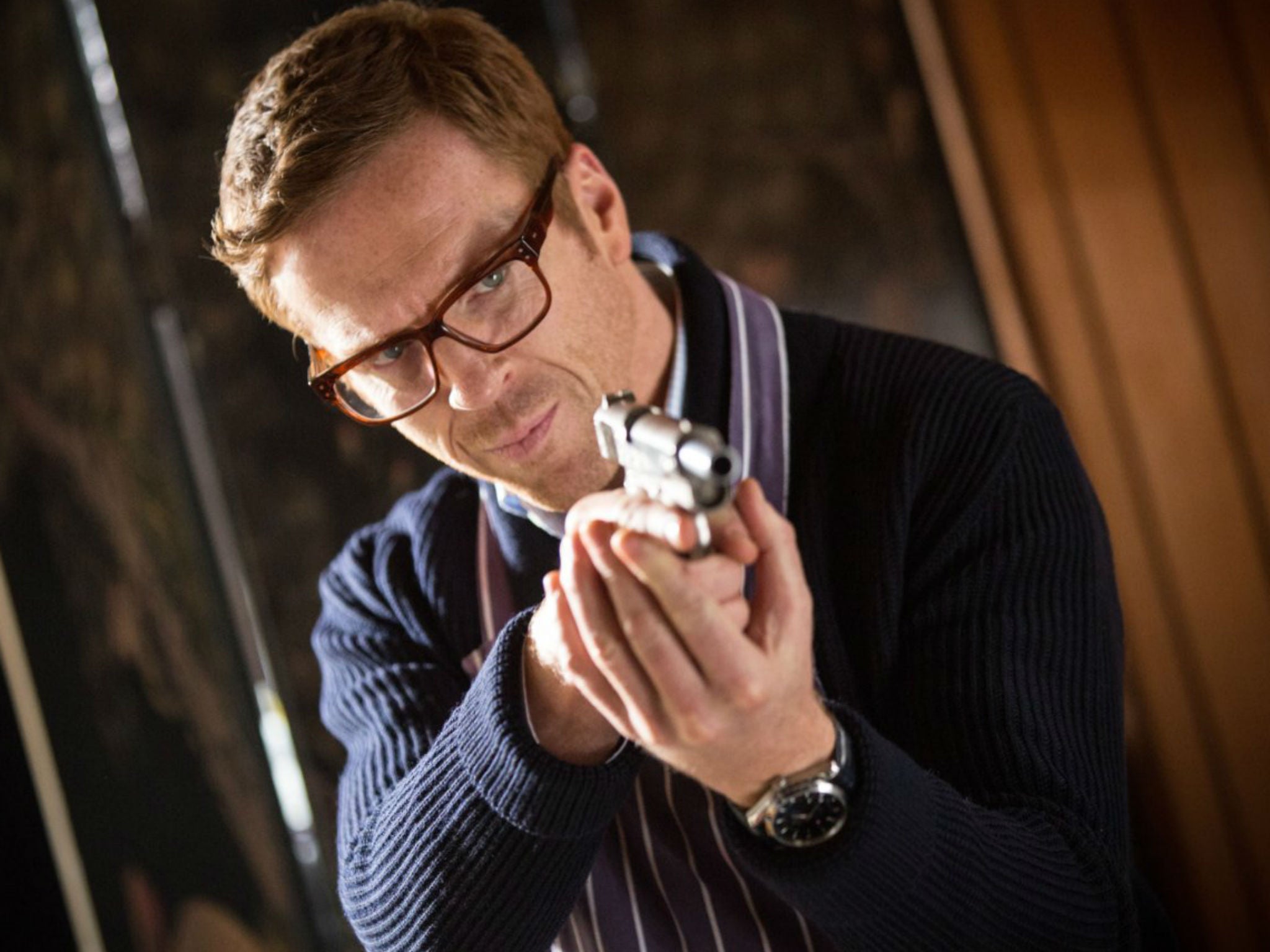How John Le Carre has stayed relevant with Our Kind of Traitor and The Night Manager
Filmmakers have begun to get a handle on his digressions, flashbacks and jargon

For an author known for writing novels fiendishly difficult to adapt for the screen, John Le Carré is in danger of having that reputation blown apart. It’s as if filmmakers have begun to get a handle on his digressions, flashbacks and jargon. Since Tomas Alfredson’s beautifully gloomy 2012 take on Tinker Tailor Soldier Spy, there has been a trend towards adapting his contemporary works – not least the recent sensational BBC version of The Night Manager – with increasingly impressive results.
“I think there is a new wave,” acknowledges Susanna White, director of the latest Le Carré movie, Our Kind Of Traitor, which hits cinemas this week. Like The Night Manager, the novel, published in 2010, is far removed from the Cold War era which Le Carré so famously documented after his years working in British intelligence as David Cornwell. “It’s very contemporary Le Carré,” adds White. “To have him take on a very different Russia, with this complex set of political relationships, was really, really interesting.”
Intriguingly, Our Kind Of Traitor is seen through the eyes of two married civilians, academic Perry Makepeace (Ewan McGregor) and barrister Gail Perkins (Naomie Harris) who are trying to repair their fractured relationship on a last-ditch holiday in Morocco. It’s there where they meet the garrulous Russian Dima (Stellan Skarsgård), who describes himself as “the world’s number one money launderer”.
Rather than lead Perry astray, Dima singles him out: he wants help. Desperate to abscond from his criminal paymasters and keep his family safe, he wants asylum in the UK in exchange for information, recruiting Perry as his go-between. And so the ordinary guy, more like a Hitchcock hero than a Le Carré spook, becomes entangled in the bigger picture. Leading the attempt to bring Dima in is government fixer Hector Meredith, played by Damian Lewis.
“This film is about the movement of money,” says Lewis. “It’s about the corrupting nature of money and London as a financial centre, London as a honey-pot for rich foreign nationals and the way in which London has changed, the influence of the Russian oligarchy here and now, buying up third, fourth, fifth homes. And [it’s about] the way in which politicians are compromised endlessly by big business because that’s part of being a politician.”
With Perry gradually bearing witness to high-ranking corruption in the British government, Lewis gestures from his hotel suite towards Westminster. “It doesn’t take much of a stretch of imagination to realise that is going on daily around us. I would hesitate to say any of our politicians are getting direct hand-outs from Russian mobsters! But certainly tax breaks for big multi-national companies that are set up here – we like to give those out, don’t we? Low corporate tax, it’s all part and parcel of the same thing, isn’t it? So it’s a good story to tell now.”
Curiously, I meet Lewis several weeks before speaking to Susanna White and Stellan Skarsgård. In the interim, the Panama Papers scandal breaks, with stories of tax-avoidance, money-laundering and offshore antics leaking by the hour. If nothing else, it shows perfectly just how switched on the 85 year-old Le Carré is. “He wrote this book in 2010, so very prescient of him, given everything that’s happened with the Panama Papers,” says White. “He’s very, very plugged in.”
Nor was it the first time Le Carré proved prophetic. Take Anton Corbijn’s A Most Wanted Man, adapted from Le Carré’s 2008 novel, which dealt with terrorism. “You think art imitates life, but since we made the film, life imitates art,” Corbijn told me last year. He cites the Boston Marathon bombing by the Tsarnaev brothers from Chechnya (echoing the nationality of the lead character, Issa) and the Edward Snowden revelations regarding the NSA spying on German chancellor Angela Merkel (German-American relations being a strong theme in the book) as examples.
“He is so contemporary,” says Skarsgård, who got “star-struck” spending an evening in Le Carré’s company. “His knowledge of the world… he’s absolutely up to date on everything… he’s not a man that has edged away from the world. He’s very much living in it.” The Swedish-born actor first read one of his books – The Spy Who Came In From The Cold – when he was 13. Le Carré’s third novel became a publishing sensation – and a moody film adaptation starring Richard Burton followed in 1965.

Watch Apple TV+ free for 7 day
New subscribers only. £9.99/mo. after free trial. Plan auto-renews until cancelled.
ADVERTISEMENT. If you sign up to this service we will earn commission. This revenue helps to fund journalism across The Independent.

Watch Apple TV+ free for 7 day
New subscribers only. £9.99/mo. after free trial. Plan auto-renews until cancelled.
ADVERTISEMENT. If you sign up to this service we will earn commission. This revenue helps to fund journalism across The Independent.
“It was the first adult book I read,” recalls Skarsgård. “I was so taken by the infinite sadness of that book. But the sadness of his books is almost romantic. It has this beautiful sad quality to it. But even if it tells stories about cynical people, and the horrible mechanics of power, his books never become cynical because it has this layer of sadness about the state of affairs, and the conditions for humanity.”
Certainly, Le Carré has always had a nose for uncovering the villains-least-likely, those operating beneath the cover of respectability: think, for example, of the corrupt pharmaceutical company at the heart of his 2001 novel The Constant Gardener (which led to another hugely successful movie adaptation). Then there are the arms dealers of The Night Manger, embodied in the book/series by antagonist Richard Roper, the so-called “worst man in the world”.

Danish-born Susanne Bier, who directed the series, admits the author was a remarkable resource when it came to researching this world. “John Le Carré has an incredibly well-developed network of people who he talks to. And people who I can’t mention who are involved with [arms] dealing. There is no-one in this world who he has not personally dealt with, and we were very fortunate to get all that expertise as a consequence.”
Already, after the huge success of the show, the BBC is said to be looking to commission a second series of The Night Manager. Whether it will be Le Carré penning fresh episodes is unclear, but don’t put it past him. “He’s still got a political anger, drive and fire about him,” says White. He’s currently putting the finishing touches to The Pigeon Tunnel, due in September. His first work of non-fiction, it promises to delve into what he calls “the secret world” of MI5 and MI6 that he once worked for. And it’ll probably make a cracking film.
Our Kind Of Traitor opens 13 May
Join our commenting forum
Join thought-provoking conversations, follow other Independent readers and see their replies
Comments
Bookmark popover
Removed from bookmarks